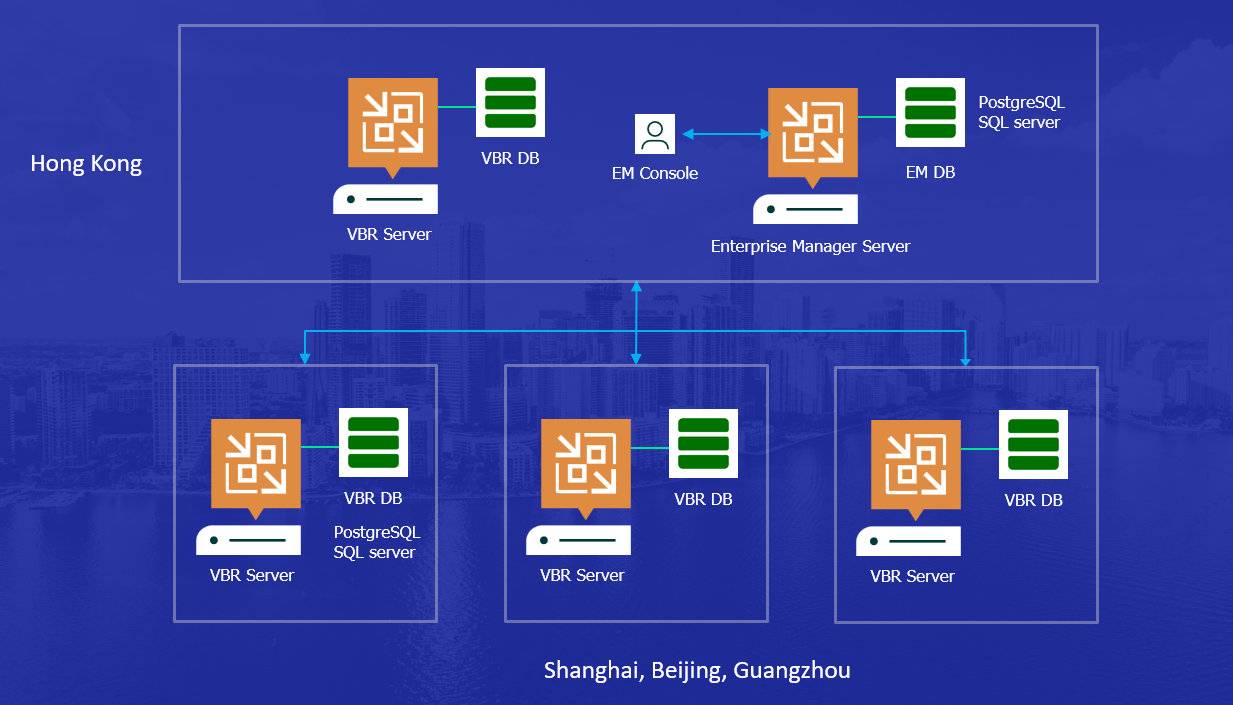My company have 20 servers location in 4 different locations (Hong Kong, Shanghai, Beijing, Guangzhou), I would like to know how many license pack I needed to purchase for these 20 instances?
Hi
If you have a Veeam server on each location, you can manage license in a centralized way using Veeam Enterprise Manager, for example.
Hi
There are two options and it will depends on the growth of the company in the future and those options as bellow :
- 4 packs of Veeam Essentials license 7(each pack contains 5 lnstances license and the max of this edition is 50 Instances)
- Data Platform VUL two packs (each pack contains 10 instances license and can be more than 50 instances)
Regarding the Data Platform there are 3 options :
- Foundation (VBR only) perpetual or subscription
- Advanced (VBR + Veeam ONE) perpetual or subscription
- Premium (VBR + Veeam ONE +
- Veeam Recovery Orchestrator) Subscription only
All details in below link ;
https://www.veeam.com/licensing-policy.html
Regards
Hiiii
Licensing - Veeam Backup Enterprise Manager Guide
The most economical and recommended bundle for this scenario is the 04 x VDP Essentials VUL (annual subscription or perpetual options).

Hi
if licensing cost is an issue, and you don’t need ‘extravagant’ features, you could get away with not having to purchase any VUL license instances and run Veeam Server Community Edition at each location you have servers, as the Community Edition has 10 instances free. So, each location you’d have 10 instances to use at your discretion, with a total of 40 instances (again, 10 at each location VBR is installed).
But, to centrally manage all your servers, it would be best to use Enterprise Manager with a purchased VUL as others have shared above. And, just for growth purposes, I wouldn’t buy just 1 VUL. I’d buy 2. Just my suggestion.
Best,
Shane
I think the Community Edition is not recommended for this scenario; it is a production environment distributed across four locations, even though it has few VMs.
There are many restrictions in Community Edition, including security-related capabilities. Additionally, in the Community Edition, centralized management by Enterprise Manager is not supported:
veeam_data_platform_feature_comparison_ds.pdf
In terms of cost vs. benefits, I assure you that the VDP Essentials bundle is the best choice for this case; it has the same capabilities as the VDP Advanced presented in the previous link with lower licensing costs.

Community Ed is an option if cost is a factor; and it can be used for production environments. There is no barrier for its use for production vs test environments. It just depends on how an org wants to manage their environment, and what features they desire and/or require.
It is probably best to use VEM to centrally manage multiple VBRs though..I agree... and I did share this in my previous comment. But, an org doesn’t “need” to use VEM..they can manage each location individually if they wanted. And, if they don’t need certain features, and if ‘best case Support’ is ok, then Community Edition is an option, depending on what their goals, requirements, constraints, & objectives are.
I am not necessarily suggesting to use this deployment scenario, but rather just providing an alternative possibility. 
For distributed environments, Veeam recommends using Enterprise Manager to control and allocate the licenses between many VBR servers. It is a best practice and it is recommended by Veeam SEs, documentation and support.
Due to the Community Edition's many restrictions, including limited support, it is not recommended for production and professional environments. It is what it is: community licensing. Please refer to the many restrictions in the link below:
veeam_data_platform_feature_comparison_ds.pdf
In addition to being a best practice, it will allow for centralized management, such as a granular allocation of licensing as the environment grows differently in each location.
Comment
Enter your E-mail address. We'll send you an e-mail with instructions to reset your password.
